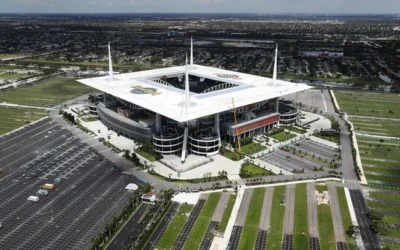Carvana, the pre-owned car seller who once aimed to reinvent the car buying process has experienced multiple ups and downs as a business but has most recently seen its share price tumble due to a recent Hindenburg Research report suggesting the company may be using fraudulent accounting practices to artificially boost perceptions of performance.
The report indicates an Enron-like accounting structure where the company is hiding key metrics of success, potentially recognizing unwarranted revenue, selling auto loans to undisclosed buyers, conducting massive stock sales for the company’s ownership and offloading unsold units to an auto warranty provider called DriveTime, a company owned by CEO Ernie Garcia III’s father, Ernie Garcia II.
DriveTime’s involvement
Likely due to the father-son relationship between the two companies’ CEOs, DriveTime and Carvana have a deal where reimbursements from warranty sales were “pretty generous” in Carvana’s favor, according to a former Carvana leader who spoke to Hindenburg Research. Another director told the group, “As a related party, we’re [Carvana] able to kind of have an agreement that is favorable to pull as much of that profit forward.” Carvana was originally a spinoff from DriveTime.
Carvana directors said DriveTime’s involvement in the company’s operations was kept quiet. “[Selling cars to DriveTime is] a lever that’s not talked about. It’s kind of like Fight Club… there’s certain things we don’t talk about, and we don’t talk about DriveTime.” Legal action claiming wrongdoing in the relationship between DriveTime and Carvana has already been brought forth by two pension funds regarding “sham deals,” Hindenburg researchers reported.
Questionable loan writing, accounting and business practices
Though the company is known for its office building-sized car vending machines, the essence of its business is the writing and flipping of subprime auto loans. Former Carvana employees told Hindenburg the company has been able to write loans at a near 100% approval rate. The report says that approximately 26% of the company’s gross profit is from the sale of auto loans to third parties, such as its long-time partner Ally Financial.
However, the company recently began selling these loans to an undisclosed third party, totaling $800 million worth of loans in the second and third quarters of 2024. Those sales accounted for 18.3% and 16.3% of total loan sales in those quarters, respectively.
Hindenburg researchers suggest the potential undisclosed buyer, or one of them, could be Cerberus Capital, where Carvana director Dan Quayle serves as chair of global investments.
The company has also issued more than $15.4 billion in asset-backed securities (ABS) while keeping a partial stake in these assets on its balance sheet, allowing it to claim ownership of some of the cash flow generated by the loans, according to the report. However, its lack of underwriting standards for the sake of cash flow may be catching up as the rate of 60-day delinquencies among its purported “prime” borrowers is “more than four times the industry norm.”
The quality of these loans Carvana is writing, according to Hindenburg, is likely “toxic.” In a market of increased delinquencies and high repossession rates, the future of Carvana’s ability to count on cash from this department may deteriorate quickly.
In the third quarter of 2024, Carvana reported $3,497 in retail gross profit per unit, a high number considering their notoriously competitive practices in paying for vehicles, but this figure is inflated by approximately 34.5% due to an estimated $390 million in selling costs shifted into selling, general and administrative expenses (SG&A), a figure that is much more than its competitors, Hindenburg claims.
The quality of the units themselves has also come into question, as Carvana claimed in August 2023 that cost reductions did not affect quality. But, a former reconditioning leader revealed to Hindenburg standards were lowered for an “economy line” segment, a decision the company has never disclosed.
A former executive told Hindenburg that Carvana could move income around quarter to quarter by timing loan sales. This may have occurred in May 2023, when Carvana reported earnings with a 41% year-over-year drop in loan sales. This resulted in negative adjusted EBITDA and Garcia III to cast the blame on market uncertainties as the cause. During this lull, the company’s CEO purchased $126 million in company stock.
Then, just two days later, the company announced its best quarter in history and a resurgence in loan sales. This timely turnaround not only benefited the company but also netted Garcia hundreds of millions of dollars in growth on his previous purchase.
Audit woes and prior fraud experience
The company’s leveraging of its leaders’ networks is nothing new, as two members of Carvana’s audit committee have personal relationships with Garcia II. Greg Sullivan previously served on DriveTime’s board and was suspended by the New York Stock Exchange in relation to the Lincoln Savings and Loan Association collapse, a scandal that involved Ernie Garcia II pleading guilty to a felony bank fraud charge in 1990. According to Hindenburg researchers, he “helped a company report fake accounting income through sham transactions,” and SEC charges alleged he “signed a falsified letter for [the company’s] auditors.”
There’s also Ira Platt, Carvana’s audit committee chairman, who was DriveTime’s longtime banker and Garcia II’s business partner. This raises questions about the integrity of Carvana’s finances and the involvement of Garcia II in its business practices, despite his son holding the CEO position.
The company has also worked with the same public auditor, Grant Thornton, for over a decade, far exceeding industry standards.
Researchers have said the company is “engaged in accounting games while the CEO’s father dumps billions in stock,” and they believe Carvana is “truly an accounting grift for the ages.”





